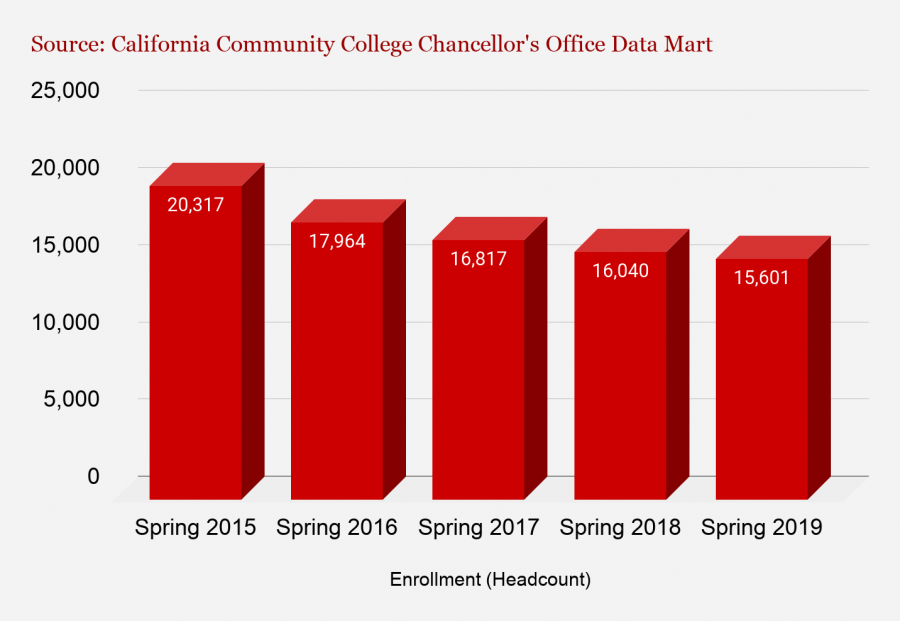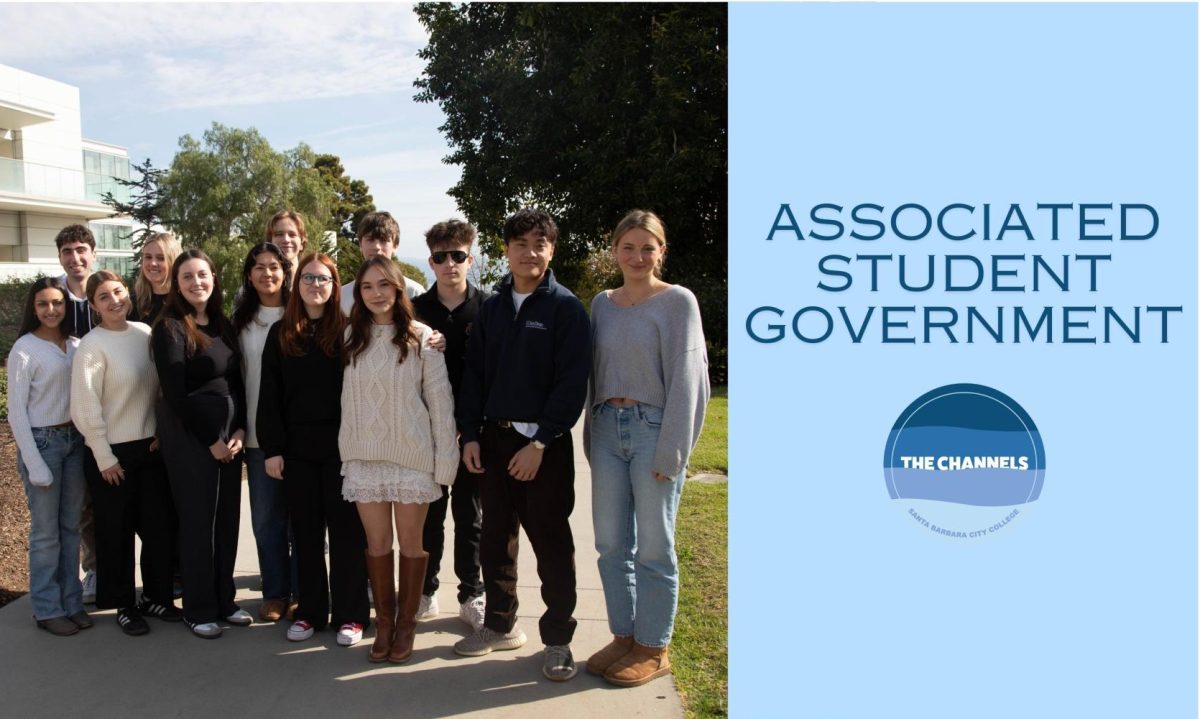Credit enrollment at City College this semester has plunged by 500 students since last spring, and the number of units has plummeted by more than 3,000.
This decline continues an unnerving trend at the college and has created a ripple effect. As of Jan. 22, 105 course sections have been canceled.
These class cancellations come at a time in which state-wide enrollment is dropping and the college faces an impending financial crisis due to budget cuts.
Enrollment has been on a steady decline over the past few years.
The Chancellor’s Office reports that from Spring to Fall 2019, enrollment dropped by about 1,500. The Channels reached out to the administration to corroborate this number, but Executive Director of Public Affairs and Communication Luz Reyes-Martin could not provide the data before publication.
With fewer students to take the less-popular classes, they are the first to suffer.
At the start of this semester, many students found themselves prepared and at the door of a class that no longer exists, and without any proper warning.
“It’s just so unfortunate because I feel like it’s not the student’s fault when the class gets canceled,” said Academic Counselor Liz Jungermann. Jungermann helps students with canceled classes every semester but admitted that the number seems especially high this semester.
Vittorio Morini, a second-semester economics student, experienced the effects of last-minute class cancellation first-hand.
Morini’s math class was canceled on Tuesday of the second week of school, with “no heads up.”
He hopes to transfer to UCLA, but his major requires three math classes prior to transfer. Due to this cancellation, “It would mean I would have to take two math classes over a semester,” he said.
Class cancellations are fairly common every semester as enrollment and subject interest become clearer, but the number of cancellations made in January is uncommonly high.
Last spring, out of the hundreds of classes that were added or canceled, only seven sections were canceled in the month of January. Early-semester cancellations can be especially difficult for nontraditional students, such as re-entry students, students with children and students working full-time jobs.
Early cancelations can often cause these students to drop out of college altogether due to the difficulty of having to rework their schedules and finding a replacement course.
“Sometimes it is more detrimental than other times,” said Jungermann. General education classes can be easily rescheduled, but pre-requisite classes can be essential to a student’s transfer plan. “That’s when it’s much more stressful for students because it can put them back a semester or more,” she said.
City College will cancel a class due to low enrollment or staffing changes, according to Reyes-Martin. In this case, many classes were canceled due to low enrollment.
The school points to Assembly Bill 705, the state mandate that no longer requires student assessment in Math and English, as a key player in these cancellations.
The bill allows students to self-place in these subjects, eliminating the set path that the City College has used in the past.
“There was a degree of uncertainty about what courses students would take and when so the college over scheduled in these areas,” said Reyes-Martin. Administrators plan to evaluate the enrollment patterns over multiple semesters to better plan available course schedules in the future, she said.
This ongoing issue furthers the need to increase enrollment, an issue that has weighed heavily on college administration for semesters.














